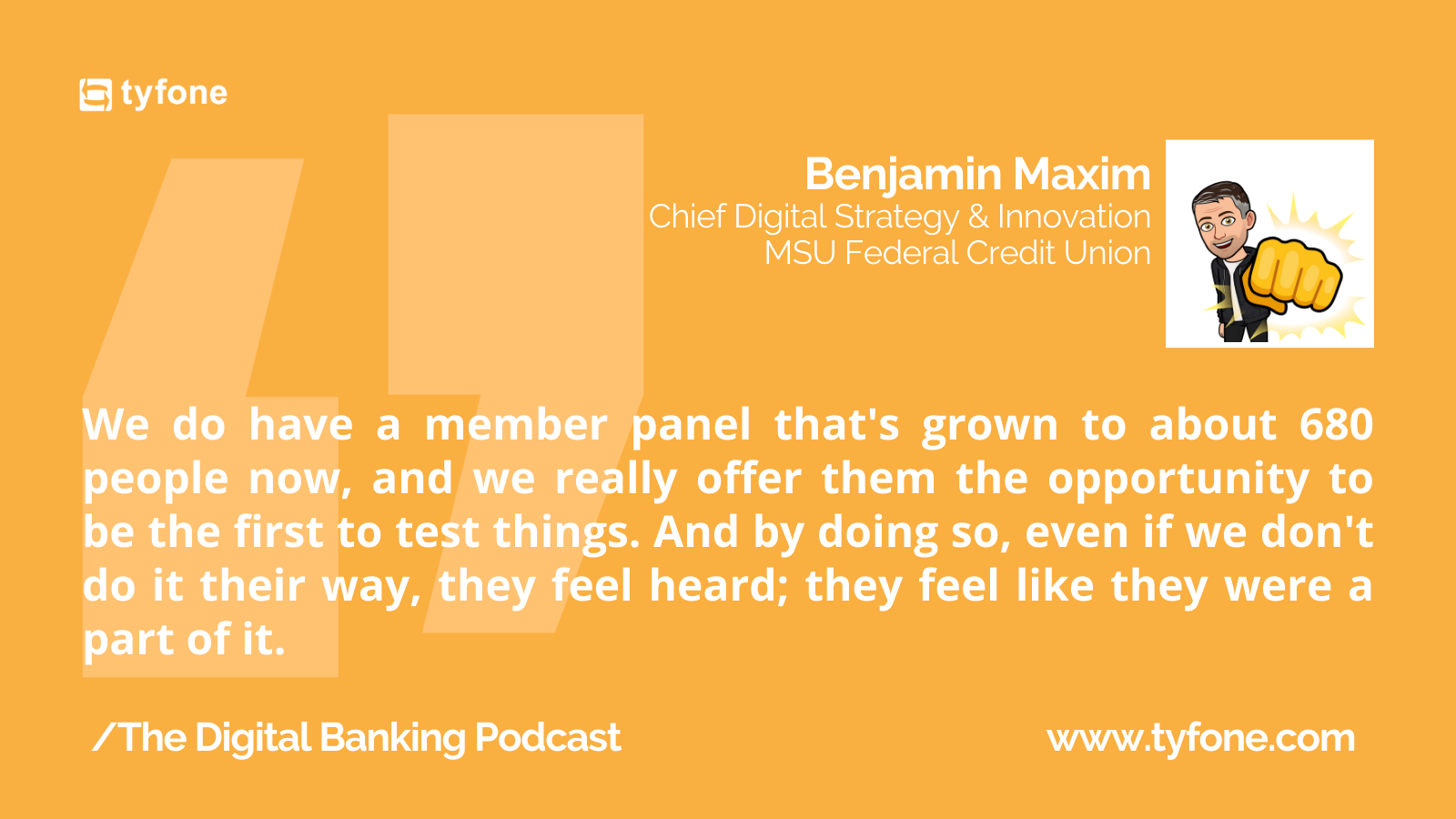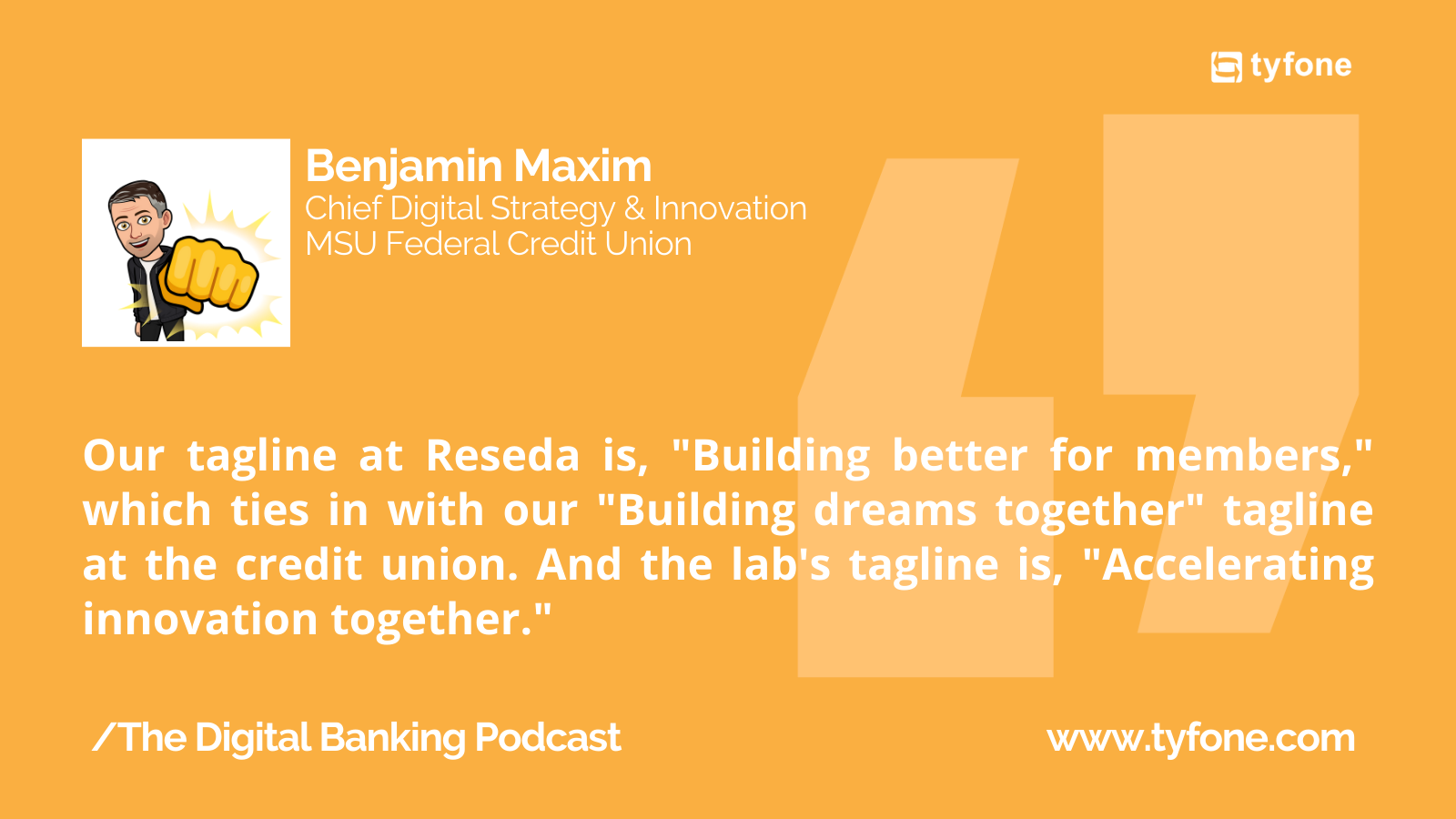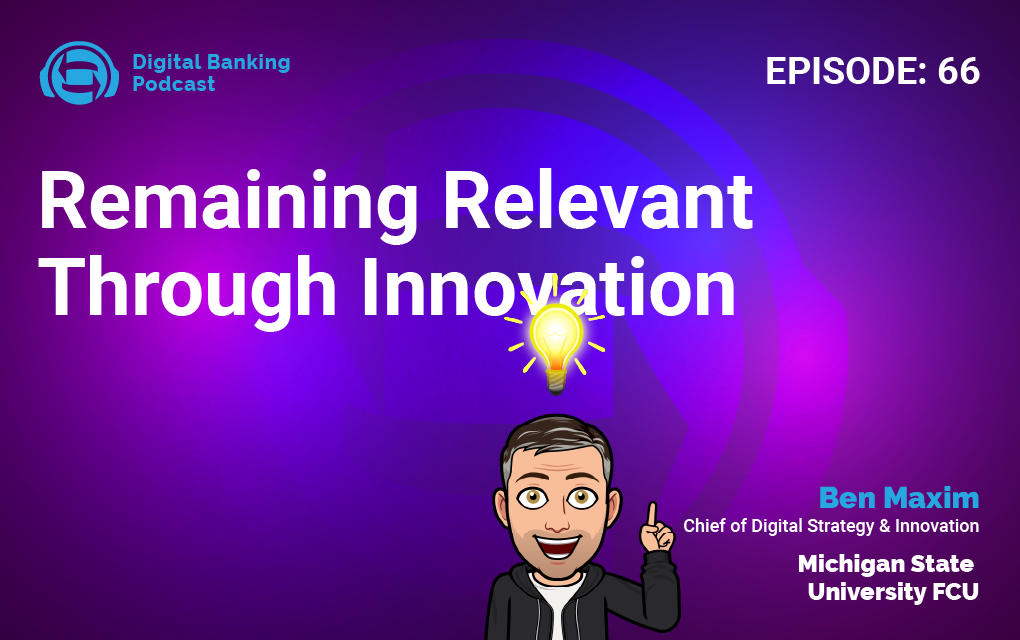The Mechanics of Innovation

Ben Maxin
Chief of Digital Strategy & Innovation
- If you want to attract younger consumers, you must innovate.
- You can use products or services from one vendor or expand your relationships and use niche products from niche service providers.
- Each community financial institution (CFI) is unique, so no two CFIs will make the exact same decisions.
- For new technology, you can build, buy or a partner. Because building technology puts all the risk on the CFI, it’s an option that should be exercised only in rare cases.
Michigan State University Federal Credit Union (MSUFCU) is considered one of the most innovative CFIs in the industry. The credit union has its own Innovation Lab, as well as a technology CUSO called Reseda Group that develops solutions with broad market appeal.
Benjamin Maxim, Chief of Digital Strategy & Innovation at MSUFCU and CIO at Reseda Group, explained his approach to innovation.
“If you think of how most credit unions formed, it was out of an innovative way to deliver financial services,” said Maxim. “MSUFCU was founded out of a desk drawer at Michigan State University during the Great Depression from professors and faculty that were trying to get each other access to loans. That wasn’t something that was happening with banks. Innovation’s been at the forefront of what we’ve been trying to do as credit unions, and bringing it back to that mission alignment, where we all have missions and give back to our communities.”

What They Want Versus What They Need
According to Benjamin, MSUFCU has internal teams dedicated to development and innovation because they want to be able to respond to member feedback and meet member expectations.
“At the core of what we try to do, we try to do a balance of measuring what are our members’ needs. But sometimes they don’t know what they need,” noted Maxim. “Being from the Detroit area, growing up here, there’s a famous Henry Ford quote I like to bring out: ‘If you asked the people what they wanted, they would’ve said they wanted faster horses, not cars.’ So, at some point, you do have to maybe present ideas or get new concepts in front of them, and they may be shot down, and maybe it’s not the right timing. We’ve experimented with things like voice banking. We did that maybe four or five years ago when Alexa was the hottest Christmas gift going, and it wasn’t interesting to our members at that time. Now we’re looking at it more as maybe a call center technology versus it being at home … It’s the same underlying chatbot technology. It’s just in a different medium.
The Value of Partnerships
MSUFCU was founded to provide a safe place for members to borrow, save, and achieve their financial dreams. According to Maxim, employees strive every day to enable members to find financial freedom and security.
“Nextly is our new partnership with a company called CU NextGen, where we sold them our IP because we couldn’t find enough customization out there in the market and control,” said Maxim. “Now we’re asking them to build what we want, but we’re not the ones who are going to maintain it in this relationship. And that’s the good part. We can then customize all the things that are maybe a differentiator, unique to our membership base, or maybe the vendor is not quite ready to do it for everyone. We have the option with this new platform to do so. We get the best of both worlds there.”

Step 1: Define Your Requirements
Once the need for new technology is identified, the first step is always defining your requirements. That’s the most important component of determining whether to build, buy, or partner to reach the desired objective.
“We’ve spent many years getting the business leaders in the different domains – payments lending, branches, mortgages, all the different areas of the credit union – to really own the experience of their products and services and their domain within the company,” explained Maxim. “Then they provide that influence based on the feedback they’re hearing from their employees, their members they’re working with. And then creating a list of requirements from that group, ‘Here’s how we need to support the employees. Here’s how we need to support the members.’ We, at that point, then go look for solutions first because it’s obviously easiest if we start with something that’s established. We don’t want to create something that already exists.

